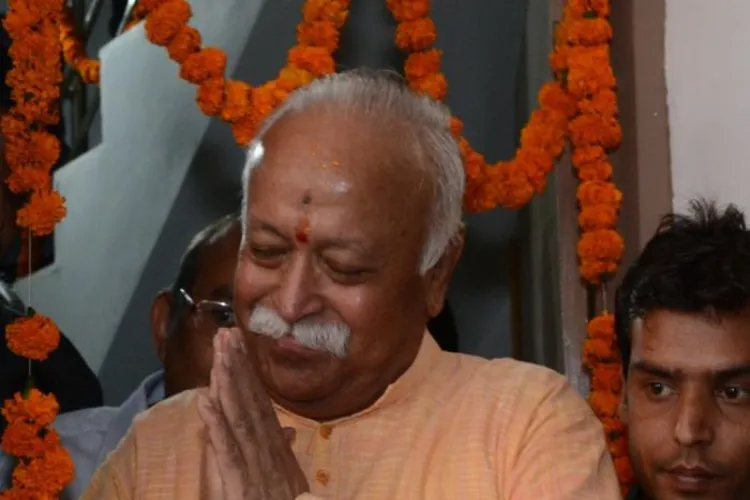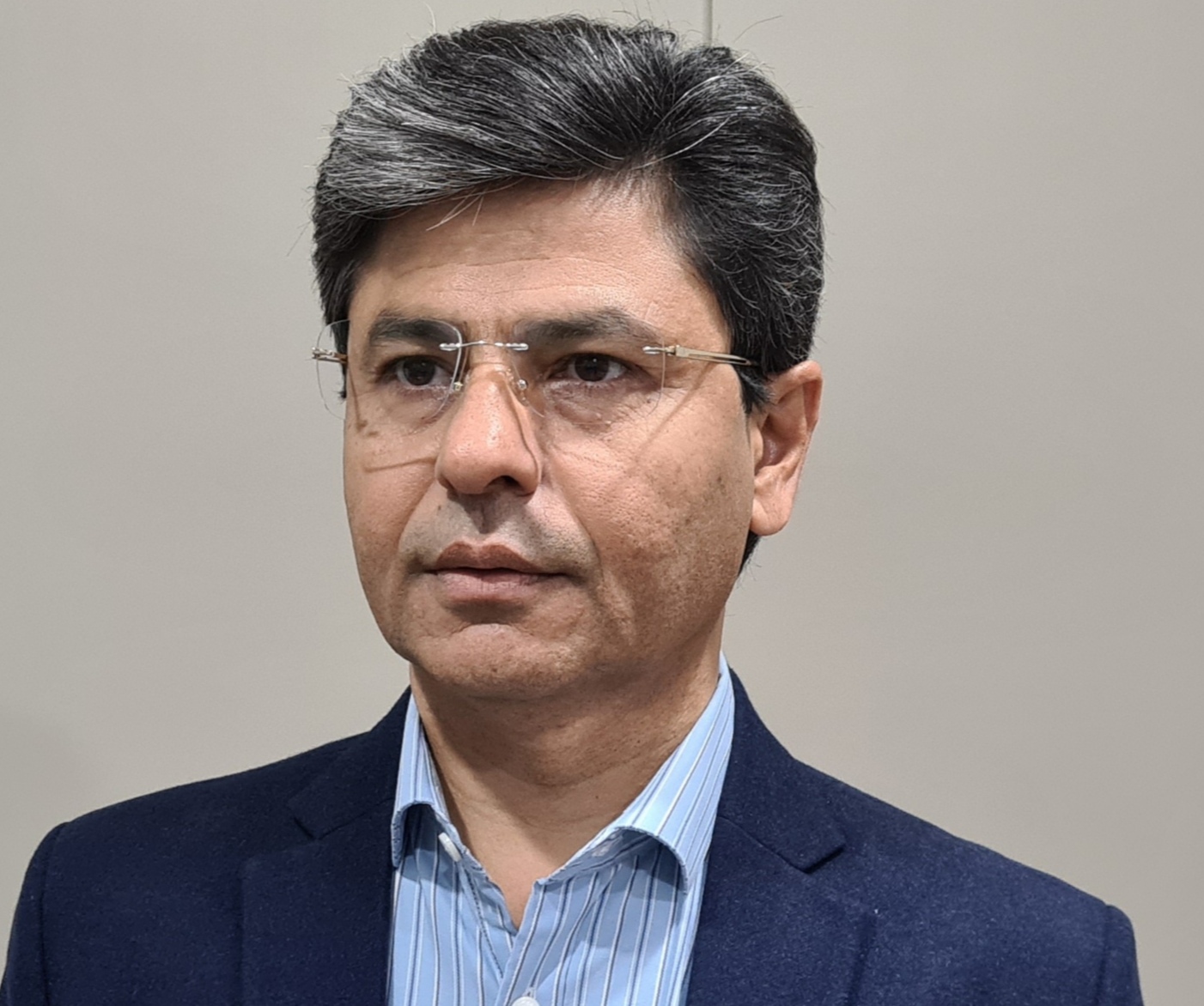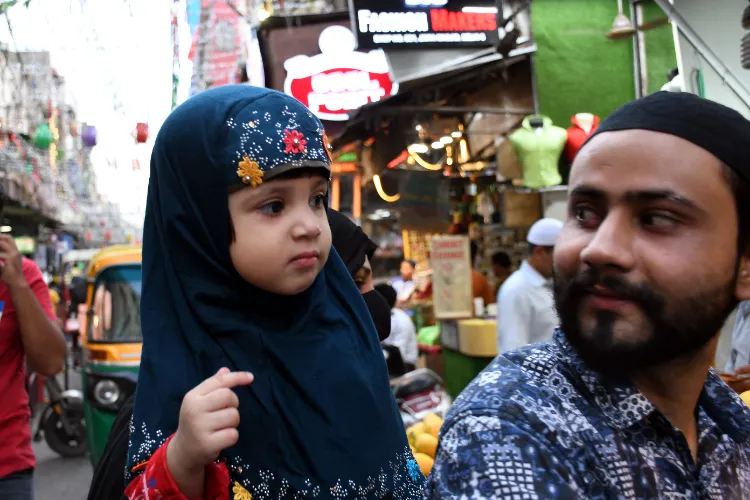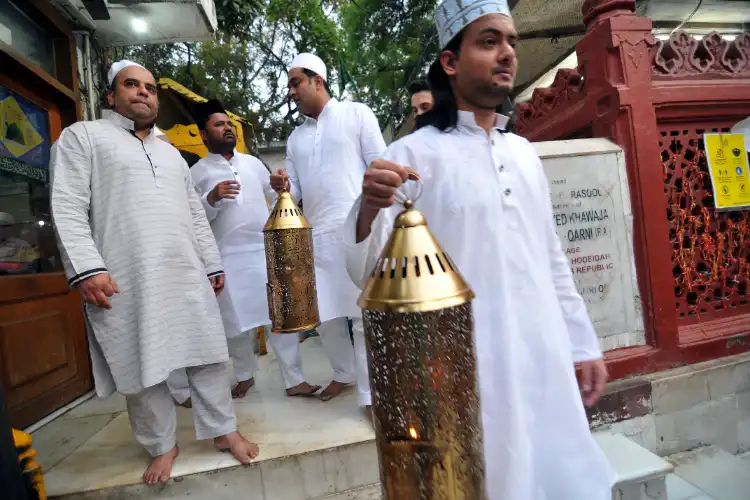
 Atir Khan
Atir Khan
The recent meeting of five Muslim intellectuals with RSS Chief Mohan Bhagwat has come at a time when Indian Muslims are feeling marginalized. The takeaways from this meeting could bring a ray of hope and lead to a structured dialogue between the two communities.
Any such Muslim initiative is a welcome development. S. Y. Qureshi, Najeeb Jung, Zamir Uddin Shah, Shahid Siddiqui, and Saeed Sherwani's meeting with RSS Chief Mohan Bhagwat could be seen as a personal initiative against the need to engage the Muslim community regularly. This initiative was taken in the wake of the Nupur Sharma controversy.
The discussion rested around identity politics, as sticking points between the two communities were discussed. The concerns from both sides were related to identity politics. Muslims don’t like being described as terrorists or Pakistanis, while Hindus have a big problem with being portrayed as the kafirs (non-believers).
The press statements issued by the Muslim group suggested that though they may have gone to meet the Chief in their personal capacity, they are inclined to take this dialogue further in a structured manner. Possibly the meeting was more encouraging than they had expected. RSS Chief also assigned four senior RSS leaders to interact with them for this cause.
It cannot be denied that Muslims constitute a large chunk of the Indian population and their concerns cannot be brushed under the carpet. If India were to be put on the fast-track development trajectory, it would be in everybody’s interest to take this process forward.
Interestingly the recent turn of events has underlined the urgency for a dialogue aimed at assuaging the fears and worries of the Indian Muslim community. This opportunity must not be wasted. This is not the first time that RSS Chief has met the Muslims. Earlier on he met Jamait-ulema-Hind President Maulana Arshad Madani. He also launched a book by Muslim scholar Khwaja Iftekhar.
He also visited the New Delhi office of Maulana Omar Ilyasi, who is the president of the All India Imam Council. This was followed by his visit to a Delhi madarsa that day. It clearly shows there is no inhibition on the part of the RSS to engage with Muslims. Many Muslim scholars are noting with interest the changing attitude of the RSS towards Muslims.
.webp)
Maulana Omer Ilyasi and Mohan Bhagwat
Of the five persons who called upon RSS Chief are apolitical, and at least two of them have a long experience in public administration. They know how the political and government systems work in this country. Though many Muslims have questioned the support the group could garner. The group neither has any political support nor backing from any influential religious leaders. The dialogues would be meaningful only if the Muslim thinkers get support from the governments, political parties, and the Muslim community. This cannot be denied.
However, Indian Muslims have come to terms with the reality that they are poorly represented in the Parliament and state assemblies. And some quarters have a strong sense of victimhood and suffering in their own country. The situation cannot go on like this for long and the widening trust deficit between the two communities need to be narrowed sooner than later.
Contemporary political scientists believe that world liberal democratic institutions have weakened with time, as they have failed to fulfill people’s aspirations. There is a need to strengthen democratic nations.
Globalization has not served any purpose too; it has exposed people to different cultures and has been instrumental in only creating a strong sense of religious identity due to revolutionary means of communication. Indian Muslims are no exception.
The countries have started looking inwards, and India has also started moving in that direction. Prime Minister Modi in his recent Red Fort speech expressed his model of development, which is based on five pledges he sought from the people. For making India a developed nation by 2047, removing any sign of colonial baggage, pride in our heritage, unity, and focus on our duties would be required.
Both Prime Minister Modi and RSS Chief Mohan Bhagwat have expressed their strong commitment to the values enshrined in the Constitution of India. These are positive signs, which should help strengthen the inherent strengths of India as a nation. Its composite and unique culture needs rejuvenation.
Political scientist Francis Fukuyama in his book Identity: The Demand for Dignity and the Politics of Resentment has underlined the growing role of ‘identity’ in strong nation-building. In a nutshell, he says in modern society strength of a nation would depends on how well it protects the identity of its people.

Indian Muslim - a child with her father in Delhi's walled city (Image: Ravi Batra)
The most daunting task before the Muslim group of intellectuals should they choose to move ahead as the link between the communities, Government & RSS would be to protect the identity of the Indian Muslims identity, which is perceived to be under attack and is making them insecure each passing day. The key lies in tackling this aspect and bringing a sense of comfort to the community.
This cannot happen in an environment of a constant clash with the present-day Hindu identity politics riding a wave of majoritarian consolidation. The formula must be worked out on the feelings of mutual respect and trust among all Indians.
Today Muslims need to be extra careful and attentive to not hurting the sentiments of Hindus and must do all to avoid conflict in the name of past wrongs, charting a more active agenda for peaceful coexistence. This also applies equally to the Hindu community keeping in mind its responsibility of being a big brother. There is a need to readjust the attitudes of both communities towards each other.
The second most daunting task for the Muslim representatives would be channelizing the Government’s commitment toward the development of Muslims. This has not happened whole-heartedly ever since the Independence and has relegated the sizeable community to the background of development. Justice Sachar in his report said that Muslims carry a double suitcase - of a community that has been accused of being appeased and those who indulge in violent activities such as terrorism. Justice Sachar’s efforts in studying the plight of Indian Muslims were commendable but his works were not put to proper use.
According to the 2018 update of implementations of the Sachar Committee report out of 76 recommendations made by the Committee 72 have been accepted, three recommendations were not accepted and one recommendation was deferred. Meaning that efforts have been made to study the Muslims but the implementation of efforts to improve their situation has not been done sincerely.
The softening of RSS’s stand towards Muslims brings an opportunity of realigning Indian Muslims to the nation-building efforts. An investment in this direction would not only inspire confidence but also elevate the self-esteem of the marginalized community.
BJP has also shown an inclination towards engaging with the Indian Muslims. Though the party’s interest in Muslim affairs is being seen with some suspicion in certain quarters of the Muslims. The reality is that it’s the largest political party in the world with a strong majority. So, there lies a golden opportunity.

Muslims at the dargah of Sufi saint Hazrat Nizamuddin, Delhi
The challenge before Muslim intellectuals would also be to take the entire community with them. They will not only have to take win the trust of the political leadership of various parties but would also have to ensure that the ulemas are also on the same page. In the absence of these prerequisites, their efforts would be useless.
Indian Muslims are fragmented into various sets Sunnis, Shias, Bohras, Khojas, Deobandis, Barelvis, etc. The issue of Maslaks is deep-rooted and has firm historical beliefs. This problem could perhaps be resolved by forming a Shura, which could have religious representatives from all the maslaks (sects).
The Shura (a council of religious advisors) could advise Muslim intellectuals, whenever there is a conflict between development and religion. Taking council from the Shura the body of intellectuals would do a great service in suggesting desired policy changes to the governments.
This is easier said than done. The reason is that there is hesitation on the part of ulemas to change the attitudes. Also, all these efforts would require funding to keep the body functioning independently and trustworthy.
In this hypothetical situation, if the functionaries are successful in mobilizing the funds through public funding, they would need to create branches headed by experts in the field of education, employment, skill development, social, legal and religious, and inter-faith matters. This appears to be a far-fetched possibility but if someday it becomes a reality, then it would make things easier for the governments, which have so far hesitated in initiating any major reforms in the Indian Muslim community due to the complications arising out of the internal differences within the community. The few efforts made in the past have been frustrating.
A body of intellectuals with their state-wise chapters in the form of Muslim representatives is doable. But the success of any such venture would entirely depend on trust and honesty, vested interests could mar the prospects.
ALSO READ: Madarsa surveys could become a gamechanger
It is a known fact that the nations which promote pluralism and protect the identity of all their citizens tend to be more successful than nations that only take care of any one particular group of its people based on religion, you don’t have to look far Pakistan is an eye-opening example in the neighbourhood. It has become a failed state as a result of its obsession with a clash of identities.
